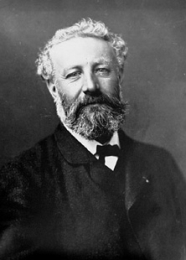In "Facing the Flag," Jules Verne crafts a riveting exploration of technological ambition and moral dilemmas against the backdrop of Victorian society's fascination with innovation. The narrative follows the exploits of the nefarious pirate Robur, who seeks to impose his vision of supremacy upon the world through the use of an unprecedented flying machine. Verne employs his characteristic detailed scientific imagination, blending thrilling adventure with philosophical inquiry, which raises questions about the ethics of progress in an increasingly mechanized age. This work exemplifies Verne's fixation on the duality of man's inventiveness and the potential for destruction that it harbors, resonating with the anxieties of his time regarding industrialization and imperialism. Jules Verne, often hailed as the father of science fiction, drew inspiration from his profound fascination with the mechanics of flight and maritime exploration, as well as his experiences growing up in a seafaring family in Nantes, France. His literary career flourished in an age of rapid technological advancement, allowing him to infuse his narratives with significant scientific insights. "Facing the Flag" is emblematic of his broader oeuvre, where he deftly interweaves thrilling plots with profound ethical considerations, reflecting the conflicts of his era. For readers intrigued by the intersection of adventure and moral pondering, "Facing the Flag" is a must-read. It not only captivates with its fast-paced narrative and inventive genius but also invites contemplation on the human condition and the implications of our relentless pursuit of progress. Verne's work remains both prescient and relevant, making it an enduring classic in the canon of speculative literature.
Dieser Download kann aus rechtlichen Gründen nur mit Rechnungsadresse in A, B, BG, CY, CZ, D, DK, EW, E, FIN, F, GR, H, IRL, I, LT, L, LR, M, NL, PL, P, R, S, SLO, SK ausgeliefert werden.










